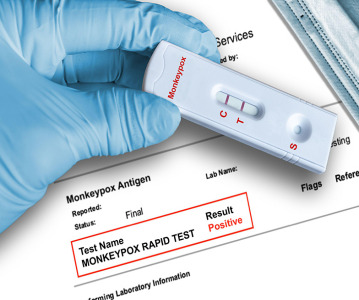New Repatha data support lower LDL-C levels for high-risk cardiovascular patients

No evidence of a leveling off of effect and no new safety concerns were identified in this analysis.
Amgen has announced a new analysis from the Repatha (evolocumab) cardiovascular outcomes study (FOURIER) that showed a statistically significant relationship between lower achieved low-density lipoprotein cholesterol (LDL-C) levels and lower cardiovascular event rates in patients with established atherosclerotic cardiovascular disease. There was no evidence of a leveling off of effect and no new safety concerns were identified in this analysis. The results were presented in a Late-Breaking Clinical Trials session at the European Society of Cardiology (ESC) Congress 2017 in Barcelona, Spain and simultaneously published in The Lancet.
"With this analysis, we've further demonstrated the safety and efficacy of achieving an LDL-C well below current targets," said Robert P. Giugliano, Brigham and Women's Hospital and Harvard Medical School, Boston and lead author on the analysis. "These findings from the first analysis of a large cohort of patients to achieve such ultra-low LDL-C levels support the use of intensive lipid-lowering therapies, such as the combination of evolocumab and statin therapy, in high-risk patients to safely reduce the risk of another cardiovascular event."
Approximately 26,000 patients from the Repatha cardiovascular outcomes study were followed for a median of 2.2 years and stratified post-randomization into five prespecified groups irrespective of treatment allocation based on achieved LDL-C at week four from baseline: <0.5 mmol/L (which converts to less than 20 mg/dL), 0.5-<1.3 mmol/L, 1.3-<1.8 mmol/L, 1.8-<2.6 mmol/L, and =2.6 mmol/L). Rates for the primary and secondary composite endpoints and cognitive function testing, as well as safety events, including cancer, hemorrhagic stroke, new onset diabetes, cataract, neurocognitive dysfunction and non-cardiovascular death were compared across these five groups.
The analysis demonstrated that there was a highly significant progressive relationship between lower LDL-C and a lower risk of the primary composite endpoint. A similar progressive reduction in the key secondary composite endpoint, which included heart attack, stroke or cardiovascular death, was also observed across all five groups. There was no meaningful difference in the safety profile across the five groups, including the group with the lowest achieved LDL-C level. Lastly, patients were more likely to achieve very low LDL-C levels when treated with Repatha and statin therapy versus statin alone.
"Scientific evidence demonstrating the strong progressive association between lowering LDL-C and the risk reduction of cardiovascular events in patients with established atherosclerotic cardiovascular disease continues to grow," said Sean E. Harper, executive vice president of R&D at Amgen. "For patients who have already experienced an event, such as a heart attack or stroke, this analysis reinforces that the intensive LDL-C lowering provided with Repatha helps patients reduce their risk of another cardiovascular event."
Related News
-
News CPHI Frankfurt 2022: Innovator Interview – DSM Biomedical
At CPHI Frankfurt we spoke to Anne-Cecile Bayne, Global Science & Innovation Lead Pharma and Medical Nutrition, and Marc Hendriks, Vice President Strategy & Business Development, on their expertise in nitrosamines and business strategy at DSM Biomedica... -
News New WHO health emergency guidelines expect full transparency from Big Pharma
The WHO are proposing a new set of pandemic guidelines to set out how future global health crises should be handled. -
News Magic mushrooms could be used to treat mental health conditions
A compound found in magic mushrooms, psilocybin, could be used to treat mental health conditions and help patients suffering with severe depression, as shown by the results of the largest study of its kind to date. -
News UK-based partnership to launch DETERMINE study into rare cancer research
UK-based CRO Quanticate is set to partner with Cancer Research UK for the launch of the DETERMINE study focused on testing a range of existing and approved drugs and therapies on rare cancers. -
News FDA approves Thermo Fisher blood tests for wheat and sesame allergies
Both tests have been approved by the US regulator for in vitro diagnostic use -
News QIAGEN launches world’s first syndromic test for monkeypox
The test can distinguish between monkeypox and other diseases that cause similar symptoms. -
News Monkeypox Update: Vaccine shortage, sewage surveillance and global testing
As concern over the monkeypox outbreak continues to rise, we take a look at major developments from the first week of August. -
News CPHI Podcast Series: The importance of novel excipients for innovative drug development
The latest episode in the CPHI Podcast Series dives into the world of novel excipients and explores their importance for innovative drug development.
Position your company at the heart of the global Pharma industry with a CPHI Online membership
-
Your products and solutions visible to thousands of visitors within the largest Pharma marketplace
-
Generate high-quality, engaged leads for your business, all year round
-
Promote your business as the industry’s thought-leader by hosting your reports, brochures and videos within your profile
-
Your company’s profile boosted at all participating CPHI events
-
An easy-to-use platform with a detailed dashboard showing your leads and performance


.png)




